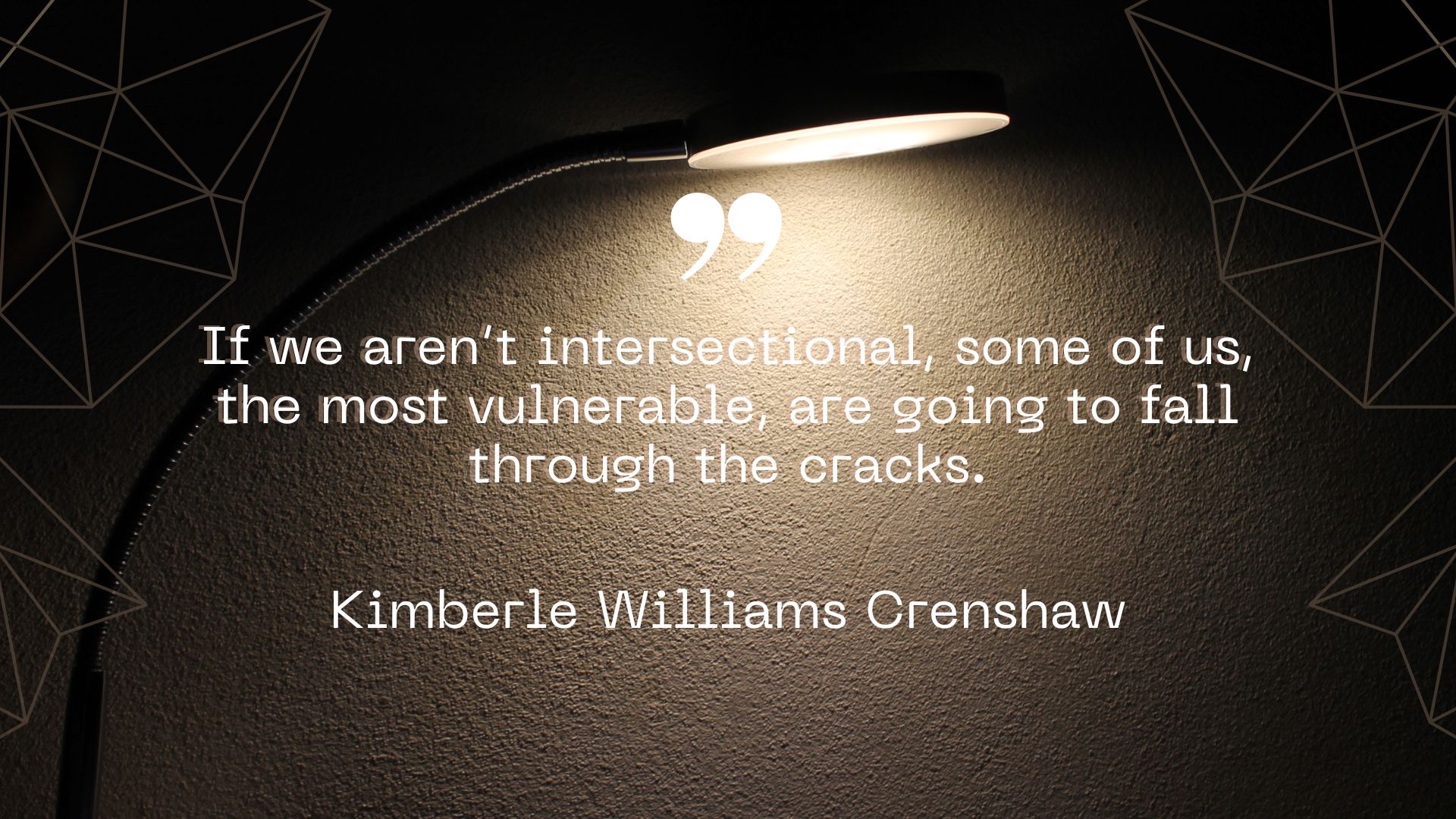If we aren’t intersectional, some of us, the most vulnerable, are going to fall through the cracks.
Kimberle Williams Crenshaw___
Intersectionality is a concept in social justice that refers to the interconnected nature of social categorizations such as race, class, and gender and how these intersections contribute to systems of discrimination or disadvantage. It acknowledges that people can be affected by multiple forms of oppression and privilege at the same time, and that these intersections can have a significant impact on their experiences and well-being.
For example, a person who is a woman of color may face discrimination and oppression based on both their gender and their race, which is different from the discrimination and oppression experienced by a white man or a woman of a different race. Intersectionality recognizes that these different forms of oppression are interconnected and cannot be examined separately from one another.
The concept of intersectionality was first coined by legal scholar and critical race theorist Kimberlé Crenshaw in the late 1980s. It has since become an important concept in social justice and is often used to analyze systems of oppression and privilege, and to advocate for more inclusive and equitable policies and practices.
Yes, “If we aren’t intersectional, some of us, the most vulnerable, are going to fall through the cracks” is a quote that highlights the importance of considering the intersections of different forms of oppression and privilege. Intersectionality is the idea that different forms of oppression, such as racism, sexism, and homophobia, intersect and overlap, creating complex systems of discrimination and privilege. It acknowledges that people can be affected by multiple forms of oppression and privilege at the same time, and that these intersections can have a significant impact on their experiences and well-being.
By recognizing and addressing the intersections of different forms of oppression, we can work towards creating a more inclusive and equitable society. Without intersectionality, some people who are marginalized in multiple ways may be overlooked or disadvantaged, and the most vulnerable members of society may be at risk of falling through the cracks. Therefore, it is important to consider the intersections of different forms of oppression and privilege in order to create a more inclusive and equitable society.




